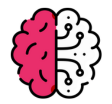In today’s fast-paced world, the concept of health extends far beyond simply “not being sick.” Health has become a comprehensive term that encompasses physical strength, mental clarity, emotional stability, and even social well-being. As modern life becomes more complex and demanding, the need for a well-rounded approach to health has never been more important. In this article, we’ll explore what true health means, why it matters, and how individuals can take steps toward living a healthier, more fulfilling life.
1. Understanding Health Beyond the Physical
When most people think about health, they picture physical fitness—strong muscles, healthy organs, and a disease-free body. However, health is far more complex. According to the World Health Organization, health is “a state of complete physical, mental, and social well-being, and not merely the absence of disease or infirmity.” This broader definition recognizes that a person who eats well but suffers from chronic stress or social isolation is not truly healthy.
Health has many dimensions:
- Physical Health – the ability to carry out daily tasks without fatigue or physical stress.
- Mental Health – emotional well-being, the ability to think clearly, manage emotions, and handle stress.
- Social Health – having meaningful relationships and a supportive community.
- Spiritual Health – a sense of purpose, inner peace, or connection to something greater.
- Environmental Health – living in a clean, safe, and supportive physical environment.
Achieving balance in all these areas is essential to maintaining overall wellness.
2. The Role of Diet in Health
“You are what you eat” is more than just a catchy phrase; it’s a reflection of how vital nutrition is to overall health. A well-balanced diet provides the fuel our bodies need to function effectively. Vitamins, minerals, proteins, fats, and carbohydrates all play specific roles in maintaining health and preventing disease.
- Fruits and Vegetables offer essential vitamins and antioxidants.
- Whole Grains provide long-lasting energy and digestive fiber.
- Lean Proteins support muscle repair and immune function.
- Healthy Fats like omega-3 fatty acids benefit the heart and brain.
- Hydration is also crucial; water helps regulate body temperature, transport nutrients, and remove waste.
Poor dietary habits, on the other hand, can lead to serious conditions like obesity, type 2 diabetes, cardiovascular disease, and certain types of cancer. Eating mindfully, reducing processed foods, and staying informed about nutrition are key steps toward better health.
3. Exercise: The Body’s Natural Medicine
Physical activity is a cornerstone of good health. Regular exercise helps control weight, strengthens the heart, reduces the risk of chronic diseases, boosts mood, and improves sleep. It even benefits brain function by promoting neuroplasticity and improving memory.
Experts recommend at least 150 minutes of moderate aerobic activity per week, along with strength-training exercises twice a week. This can include:
- Walking, jogging, or cycling
- Swimming or dancing
- Yoga or pilates
- Strength training with weights or resistance bands
The goal is not just to look fit, but to feel stronger, more energetic, and more capable in daily life.
4. Mental and Emotional Well-Being
Mental health is an essential but often overlooked aspect of overall wellness. Anxiety, depression, burnout, and emotional distress can impact every area of life—work, relationships, even physical health. The stigma around mental illness has prevented many from seeking help, but times are changing. For those seeking a discreet and comfortable path to recovery, luxury rehab facilities offer personalized treatment in serene, supportive environments.
Some strategies to support mental health include:
- Mindfulness and meditation to stay grounded and reduce stress
- Therapy or counseling to address deeper emotional concerns
- Journaling or creative expression to process thoughts
- Social support from friends, family, or peer groups
- Rest and relaxation, including hobbies and time away from screens
Mental health should be treated with the same urgency and care as physical health. Seeking help is a sign of strength, not weakness.
5. The Importance of Sleep
Sleep is a powerful, natural tool for healing and regeneration. While many people pride themselves on working long hours or “functioning” on little sleep, chronic sleep deprivation is harmful. It impairs cognitive function, weakens the immune system, and increases the risk of heart disease and depression.
Adults generally need between 7–9 hours of quality sleep per night. Good sleep hygiene includes:
- Maintaining a consistent sleep schedule
- Avoiding screens and bright lights before bed
- Creating a cool, dark, quiet sleep environment
- Reducing caffeine intake after midday
Treating sleep as a priority can dramatically improve overall health.
6. Social Connections and Community
Humans are social beings. Studies consistently show that people with strong social connections live longer, experience less stress, and recover from illness faster. Whether it’s family, friends, colleagues, or community groups, relationships matter.
Social health means:
- Feeling connected and valued by others
- Communicating openly and respectfully
- Contributing to and receiving support in times of need
- Maintaining healthy boundaries
Loneliness is now considered a public health issue, with effects as damaging as smoking or obesity. Investing time in nurturing relationships is an essential part of staying well.
7. Technology’s Influence on Health
Technology has changed how we manage health—for better and for worse. On one hand, we have fitness trackers, telemedicine, mental health apps, and online health education. On the other hand, excessive screen time, social media addiction, and sedentary lifestyles driven by technology pose new risks.
Using technology mindfully involves:
- Setting time limits for digital devices
- Using apps that promote movement, meditation, or healthy eating
- Seeking credible online sources for health advice
- Avoiding doom-scrolling and negative content
Technology should be a tool that supports health—not something that undermines it.
8. Preventive Healthcare and Regular Checkups
One of the smartest approaches to maintaining health is preventive care. Routine checkups, screenings, and vaccinations can catch potential issues early and prevent serious illness. Health is not just about reacting to problems but staying ahead of them.
Recommended practices include:
- Annual physical exams
- Regular dental cleanings
- Eye and hearing exams
- Screenings for cholesterol, blood pressure, and glucose
- Cancer screenings appropriate to age and risk level
Being proactive with health allows for early intervention and a better quality of life in the long term.
9. Balancing Work and Life
Work-related stress can have a significant impact on physical and mental health. In today’s productivity-driven culture, burnout is common. Achieving work-life balance isn’t just about spending less time at the office—it’s about creating time for rest, hobbies, relationships, and personal growth.
Key strategies include:
- Setting boundaries between work and personal time
- Taking regular breaks and vacations
- Practicing time management
- Saying “no” when necessary to protect your energy
A healthy life includes not just working hard, but also living fully.
Conclusion: Health is a Lifelong Journey
Health is not a destination—it’s a continuous journey that requires daily choices, self-awareness, and effort. It’s about more than avoiding disease; it’s about thriving physically, emotionally, mentally, and socially. No matter where you are on your health journey, it’s never too late to make positive changes.
By eating well, staying active, managing stress, connecting with others, and making informed choices, we can build lives that are not just longer—but richer, more joyful, and deeply fulfilling.



